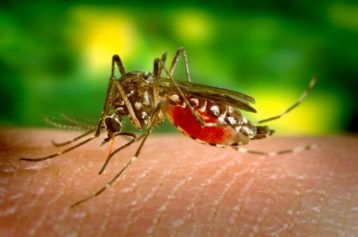
While the annual influenza epidemic touches nearly every part of the global population, some groups are at high risk of complications or even death. About 250,000 to a half-million deaths worldwide are related to seasonal influenza and not other respiratory illnesses like H1N1 or ED-68.
While a vaccination is recommended as an annual preventative method for every person age 6 months and older, here are the groups of people who should definitely get it.
- You Are Age 65 or Older
Born on or before March 31, 1950, you are in this high-risk category for complications and death. According to the U.S. Centers for Disease Control and Prevention (CDC), about 90 percent of deaths and up to 60 percent of flu-related hospitalizations annually occur with older adults. That happens partly because our immune system weakens with age, but also because the person has other health problems.
- You Have a Chronic Medical Condition
The CDC has a lengthy list of medical conditions that would put one in this high-risk category for serious complications from the flu. Asthma, cancer, HIV/AIDS, heart disease, kidney and/or liver disorders, diabetes and obesity are some of the conditions listed. Some conditions like HIV/AIDS or chemotherapy for patients battling cancer can completely wipe out one’s immune system, making a flu infection extremely dangerous and can lead to weeks if not months of hospitalization.
Diabetics can also have a difficult time fighting influenza. The added stress on the body can raise blood sugar levels, and patients would have to avoid medications, such as cough syrup, that contain high amounts of sugar. And despite the nausea and lack of appetite one may feel while sick, diabetics still have to eat regularly to normalize their sugar levels.
- Your Children Under the Age of 5
Children, just like seniors, are another high-risk group for seasonal influenza complications. About 20,000 children under age 5 are hospitalized every year due to the flu, and during the 2013-14 flu season about 100 pediatric deaths were reported. The immune systems in young children and infants have not fully formed, thus making them vulnerable. Children with chronic illnesses, such as asthma, should definitely get vaccinated. Once the virus gets inside the chest cavity, it causes mucus and swelling, which can worsen respiratory problems.
The nasal spray is approved for use in children as young as 2, while babies as young as 6 months can get a shot. Parents and caregivers of babies younger than 6 months should be vaccinated. Remember, your child’s first line of defense begins with you.
- You Are Pregnant
Women, at any stage of pregnancy, should consider this vaccine as part of their prenatal care. During pregnancy, everything changes — and that includes the heart, lungs and immune system that make the flu more severe in expectant mothers. There is also a greater chance of complications for the unborn baby, including premature labor and delivery.
The shot will protect the mother and unborn baby, and even the baby after he or she is born (up to age 6 months). A pregnant woman should not get the nasal spray.
- You Live in a Nursing Home or Other Long-Term Facility
These facilities are essentially quarantined places that house a large number of people in close quarters — a very effective breeding ground for an airborne virus like influenza. Thus most facilities similar to this — military barracks, dorms, even cruise ships — can see epidemics of flu if the majority of residents are not vaccinated.
A 2011 study by the National Institute of Health (NIH) found that Black residents in long-term care facilities were less likely to be vaccinated than white residents, at the same facility. And facilities with higher Black resident populations had lower vaccination rates overall. This was partly attributed to health education and (unequal) quality of care.
- You Are a Health Care Worker or a Caregiver
Health care workers can include anyone from a doctor to a housekeeping or laundry attendant. So it means anyone who may not only be exposed to patients but also their infectious fluids.
People with a life-threatening allergy to any of the ingredients in the vaccine or those who have an egg allergy should absolutely not get the flu vaccine. Those who ever had Guillain-Barré Syndrome also should not get vaccinated.
S.C. Rhyne is a blogger and novelist in New York City. Follow the author on Twitter @ReporterandGirl, http://Facebook.com/TheReporterandTheGirl and visit her website at http://www.SCRhyne.com

